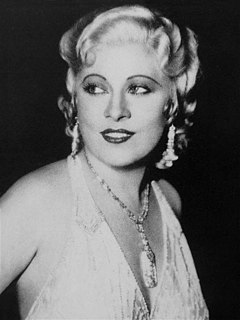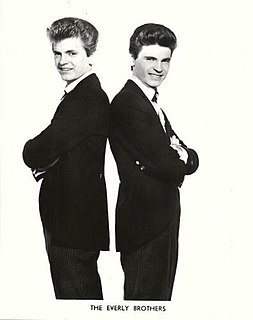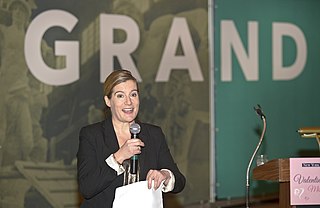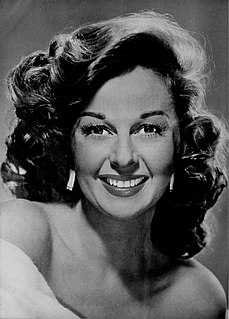A Quote by Mae West
I wrote the story myself. It's all about a girl who lost her reputation but never missed it.
Related Quotes
I missed the sound of her shuffling her homework while I listened to music on her bed. I missed the cold of her feet against my legs when she climbed into bed. I missed the shape of her shadow where it fell across the page of my book. I missed the smell of her hair and the sound of her breath and my Rilke on her nightstand and her wet towel thrown over the back of her desk chair. It felt like I should be sated after having a whole day with her, but it just made me miss her more.
I believe the first story I ever wrote was about a young girl who was terribly mistreated by her very cruel parents, and one day the girl fled to the woods to live amongst a pack of wolves. Hey, I was eleven, loved wolves, and had been grounded for what I felt was a minor infraction. Can you blame me?
Someone wrote to me asking me to illustrate a missed connection that "hasn't happened yet." This guy has seen the same girl waiting at a bus stop on his morning commute for weeks, and has been trying to find a way to approach her. He thought it would be fun to put up a Missed Connections poster [of my painting] on the corner where she waits and see what happens. It is kind of an intriguing idea but there's something a bit too manipulative about it for my liking. It's a fine line between being creative and stalking!
Well, this is a story about books." About books?" About accursed books, about a man who wrote them, about a character who broke out of the pages of anovel so that he could burn it, about a betrayal and a lost friendship. It's a story of love, of hatred, and of the dreams that live in the shadow of the wind." You talk like the jacket blurb of a Victorian novel, Daniel." That's probably because I work in a bookshop and I've seen too many. But this is a true story.
At this rate, I'd be lucky if I wrote a page a day. Then I knew what the problem was. I needed experience. How could I write about life when I'd never had a love affair or a baby or even seen anybody die? A girl I knew had just won a prize for a short story about her adventures among the pygmies in Africa. How could I compete with that sort of thing?
Why is it we love so fully what has washed up on the beaches
of our hearts, those lost messages, lost friends, the daylight stars
we never get to see? Bad luck never takes a vacation, my friend
once wrote. It lies there among the broken shells and stones
we collect, a story he would say begins with you, with me,
a story that is forever lost among the backwaters of our lives,
our endless fear of ourselves, and our endless need for hope,
a story, perhaps an answer, a word suddenly on wing, the simple
sound of a torn heart, or the unmistakable scent of the morning's fading moon.
You are hearing this song, and you're 16, and it's a song about love, or a girl. And then maybe there's a girl at school that you like. So you're going to be thinking about that girl. That song is sort of about that girl. The songwriter doesn't know that girl, obviously. He wrote it for something else. But there's the specific meaning with the universal again.
We're talking about, essentially, the Roman historians, who wrote Cleopatra into the story mostly so that they could talk about the rise of Rome. And that is one of the problems, of course, in recounting her life. She's only ever apparent to us when there is a Roman in the room, or when her story intersects with the rise of Rome.



































